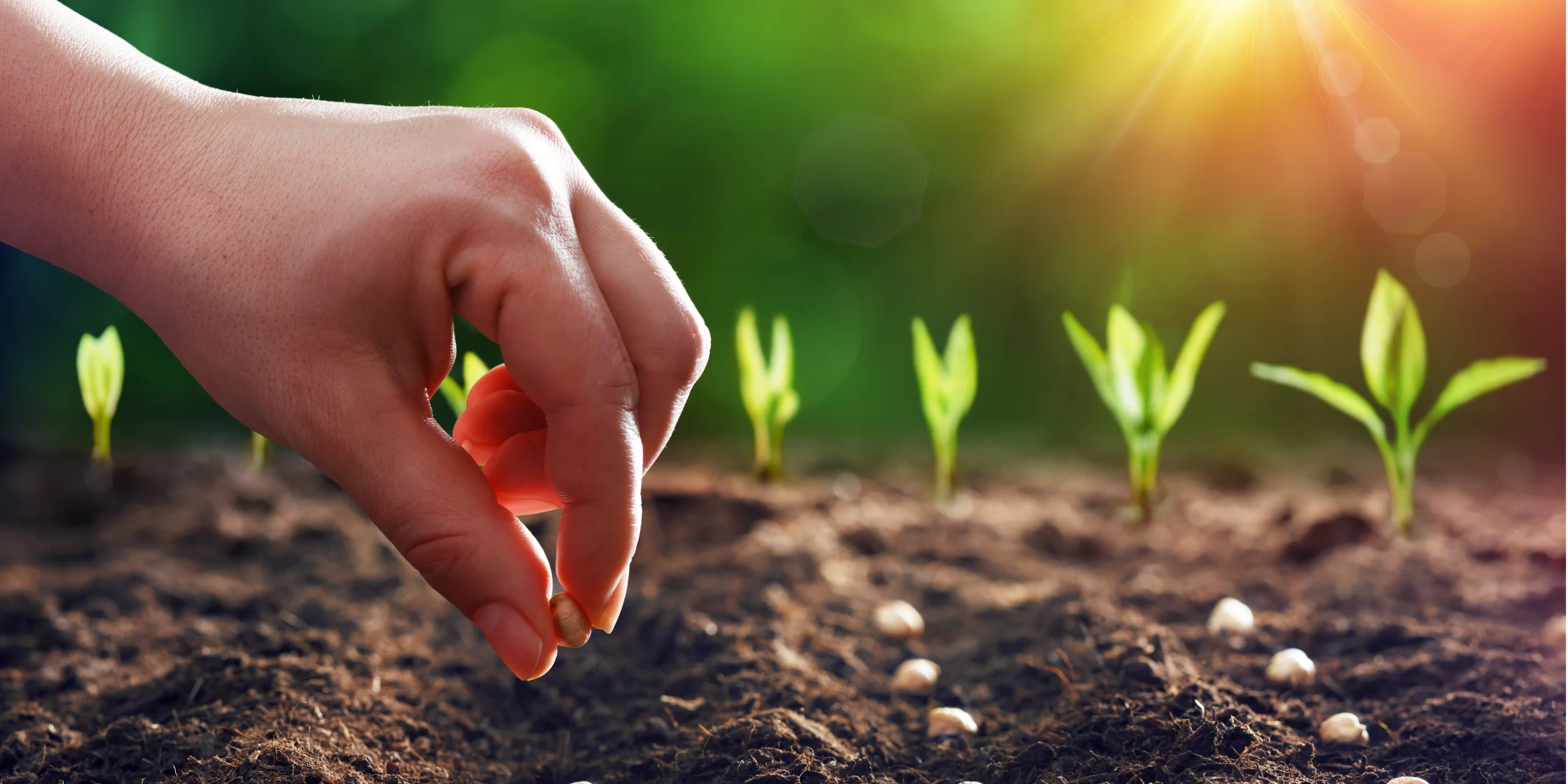Grow a Garden That Gives Back: Native & Heirloom Plants
Did you know that many fruits and vegetables we eat today have deep roots in history?
Heirloom varieties are fruits and vegetables that have been passed down for generations – typically 50 years or older – and have existed long before modern mass agriculture. These plants offer rich flavors, unique appearances, and a direct link to our food heritage. Unfortunately, many heirloom varieties are disappearing due to a loss of seed diversity which poses a serious threat to our food security in the future.
Native plants are another powerful way to grow smarter. These plants have naturally evolved in a specific region over time, making them perfectly adapted to local soil, climate, and ecosystems. By planting native species, you’ll enjoy a garden that’s easier to maintain, requires far less water in our hot summers, and supports pollinators and other local wildlife species – all while creating a more sustainable, eco-friendly space!
Pennsylvania gardeners are in luck! Our region is home to many native heirloom fruits and vegetables that thrive here with minimal effort.
Shop for seeds and native plants at these Local Favorites:
Burpee Seeds (Warminster, PA)
A well-known name in gardening with a wide range of heirloom and hybrid seed varieties to explore.
Happy Cat Farm (Newtown Square, PA)
An heirloom seed company offering unique seeds, locally made goods like basil salt, tomato jam, and tomato sauce, plus year-round classes—from hot sauce making to mushroom foraging!
Sistah Seeds (Emmaus, PA)
Sistah Seeds grows heirloom vegetable, her, and grain seeds from across the African Diaspora with a focus on African-American, Afro-Caribbean, and West African cultural crops on their 1.5 acres in rural Pennsylvania.
Roughwood Center for Heritage Seedways (Devon, PA)
Ever heard of a Khiva cucumber or a Chrysanthemum melon? Roughwood Center specializes in rare and heirloom seeds from Pennsylvania to New York, as well as unique varieties from around the world.
True Love Seeds (Philadelphia, PA)
A farm-based seed company offering culturally important and open pollinated vegetable, herb, and flower seeds. Their seeds are grown by more than fifty small-scale urban and rural farmers committed to community food sovereignty, cultural preservation, and sustainable agriculture. They share their profits directly with their growers: 30% of each packet sale goes back to the farmer who grew it!
Additional Seed Sources
Baker Creek Heirloom Seeds – A national heirloom seed company
Seed Savers Exchange – Nonprofit seed preservation and heirloom variety specialists.
Native Seeds – Focused on climate-adapted, culturally significant seeds.
Fedco Seeds – Great for cold-hardy heirlooms and organic growers.
Prairie Moon Nursery – Native wildflower and pollinator-friendly seed specialists.
High Mowing Organic Seeds – 100% organic and heirloom-focused selection.
Support Slow Food USA by purchasing a Seed Packet through their Plant a Seed Program
The Plant a Seed campaign invites school garden educators and individuals to bring biodiversity, flavor and history into their gardens. Each year, Slow Food USA puts together a cast of endangered and biodiverse seeds that tell a story. The 2025 theme is fruit. The seed varieties come from a unique grower and landscape, and tell a story of plants and people. The Plant a Seed campaign opens a door to understand the importance of biodiversity and issues of food sovereignty through the cultivation and journey of seeds. Register your school garden for Plant a Seed 2025 and receive donated seeds!
Share Your Spares!
Have leftover seeds? Don’t toss them—share them! Help Slow Food USA build community, enhance food sovereignty, and restore relationships to food and land by donating your surplus through their Share a Seed initiative. This initiative was inspired by the traditional seed swap model and is designed to create community and get more people growing at a time when seeds and opportunities to connect are scarce. Connect with others to exchange seeds, foster food resilience, build community, and spread the joy of growing. Learn more and get involved.
–Christina Shepard

